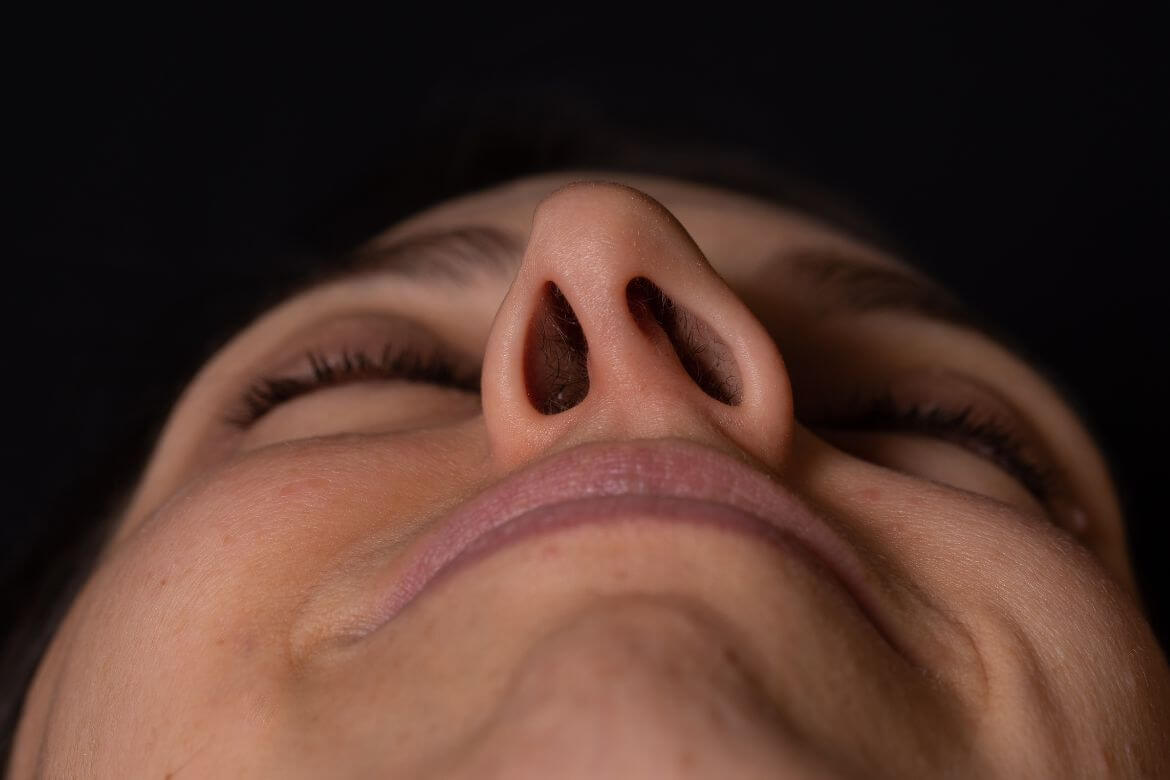The stuffy nose got you feeling like you're constantly breathing through a straw? The Physio9 Clinic's deviated nasal septum treatment in Pune can help you breathe easier and sleep better again.
A deviated nasal septum is a condition wherein the thin layer of bone and cartilage that separates the two nostrils (the nasal septum) is significantly off-center or crooked, causing one nasal passage to be smaller than the other. This can obstruct the airflow through the nose and may lead to circumstances like nasal congestion, nosebleeds, difficulty breathing through the nose, and recurrent sinus infections.
A deviated nasal septum could be present at birth or develop later in life due to injury or trauma to the nose. In some cases, a deviated septum might not cause any noticeable symptoms, and sometimes, it may not require treatment. However, if the deviation is severe and causes significant breathing problems or other symptoms, surgery may be recommended to straighten the septum and improve nasal airflow.
At The Physio9 Clinic, our deviated nasal septum treatment in Pune includes medications to reduce inflammation, relieve congestion, and prevent infections. We are committed to providing comprehensive and personalized care for patients with a deviated nasal septum.
The Physio9 Clinic prioritizes your comfort and well-being, ensuring that you receive the best possible treatment outcomes. With our expertise and sensitive care, you can find relief from the symptoms of a deviated nasal septum and improve your quality of life.
If you are not sure what to do about nasal congestion and difficulty breathing, contact us to learn more about our deviated nasal septum treatment in Pune and make your breathing easier.
FAQ's
A deviated nasal septum is not usually serious, but it can cause symptoms like nasal congestion, recurrent sinus infections, and difficulty breathing through the nose. In some cases, it may require treatment.
A deviated nasal septum can be straightened and repositioned to improve airflow through the nose.
A deviated septum, caused by a traumatic injury to the nose, such as a blow to the face, may be present from birth as a congenital condition.
Many people with a deviated septum can live without significant problems. However, if symptoms such as nasal congestion or difficulty breathing become bothersome, treatment may be necessary.
Not all deviated septums require surgery. Treatment depends on the severity of symptoms and how much they affect your quality of life. Non-surgical options, such as medications or nasal sprays, may be sufficient for mild cases.
A deviated septum can potentially reduce airflow through the nose, which may affect oxygen intake to some extent. However, in most cases, the impact on oxygen levels is minimal.
A deviated septum does not typically get worse with age. However, symptoms such as nasal congestion may become more noticeable over time due to other factors, such as allergies or changes in the nasal tissues.
A deviated septum is relatively common. It is estimated that around 80% of people have some degree of deviation in their nasal septum, although not all cases cause symptoms.
While sleeping, raising your head with an extra pillow or wedge pillow may be helpful. With your head elevated, you can reduce nasal congestion and improve breathing with a deviated septum.
A deviated septum does not typically get worse with age. However, symptoms such as nasal congestion may become more noticeable over time due to other factors, such as allergies or changes in the nasal tissues.







